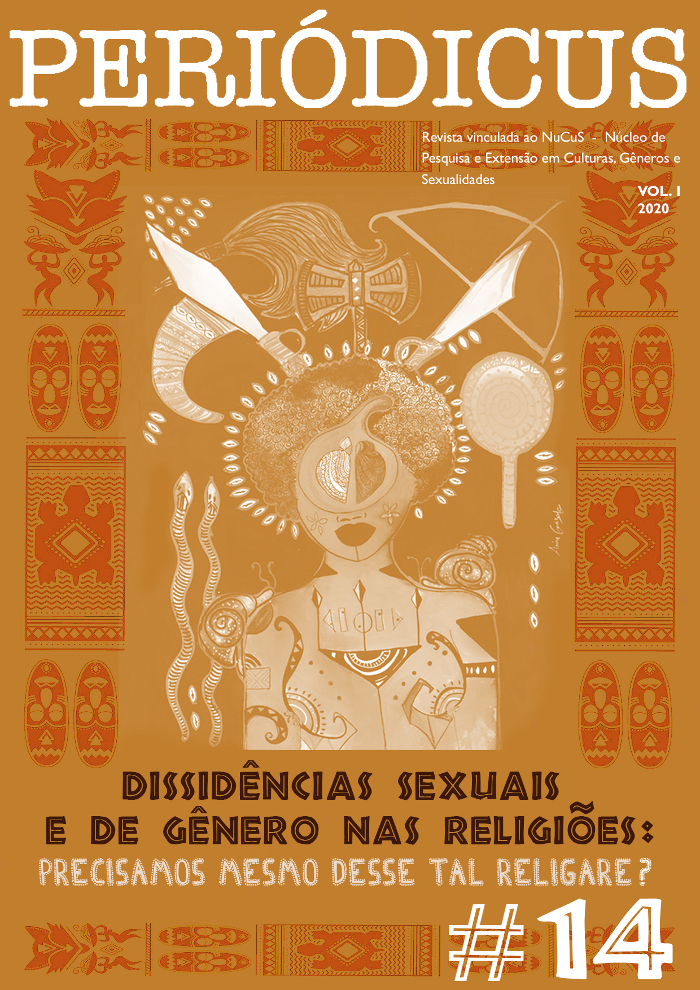When an analytical category enters the xirê: thinking about gender from Candomblé
DOI:
https://doi.org/10.9771/peri.v1i14.36666Abstract
The construction of gender as an analytical category enabled an important theoretical and methodological means to think about the process of becoming aware of the ideologies of capitalist cisheteropatriarchy. On the other hand, this notion, challenged and disseminated to feminism studies for a long time and based on the life of white European women, did not allow to gaze at other experiences and situated knowledge produced mainly by African, African Americans and Amerindian women. At this epistemic crossroads, the narratives of people practicing Candomblé on the themes of gender and sexuality provide us with an immeasurable set of experiences from different bodies that transit in these spaces and fissure the universalist character of the concept of gender to think social relations. This study briefly reflects on this category in Candomblé based on the contributions of Oyèronké Oyěwùmí, bringing to the debate some dynamics of Candomblé, Afro-Brazilian religion, and other theoretical possibilities for understanding society based on the dynamics of matripotence, seniority or relative age and the Orixás trance.Downloads
Downloads
Published
How to Cite
Issue
Section
License
Copyright (c) 2021 Almerson Passos

This work is licensed under a Creative Commons Attribution-NonCommercial 4.0 International License.
Authors who publish in this journal agree to the following terms:
Authors retain copyright and grant the journal the right of first publication, with the work simultaneously licensed under a Creative Commons Attribution Noncommercial License that allows the work to be shared with acknowledgment of authorship and initial publication in this journal, but prohibits commercial use.
Authors are authorized to enter into separate additional contracts for non-exclusive distribution of the version of the work published in this journal (e.g., publishing in an institutional repository or as a book chapter), with acknowledgment of authorship and initial publication in this journal.
Authors are permitted and encouraged to publish and distribute their work online (e.g., in institutional repositories or on their personal website) at any point before or during the editorial process, as this can generate productive changes and increase the impact and citation of the published work (see The Effect of Open Access).








